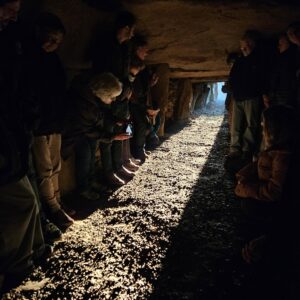
September 2013
Issued jointly by the Natural England, RSPB, Bumblebee Conservation Trust and Hymettus charities.
A BUMBLEBEE species driven to extinction in the UK has nested for the first time in a quarter of a century.
The short-haired bumblebee disappeared from our shores in the 1980s and a mission to reintroduce it was launched at the RSPB Dungeness reserve in Kent. After two releases of queen bees at the site experts have now recorded offspring worker bees for the first time.
Dr Nikki Gammans, who leads the project, said: “This is a milestone for the project and a real victory for conservation. We now have proof that this bumblebee has nested and hatched young and we hope it is on the way to becoming a self supporting wild species in the UK once again.
“It’s been a long journey to get here, from creating the right habitat for them, collecting queens in the Swedish countryside, scanning them for diseases and then eventually releasing them at Dungeness. Seeing worker bees for the first time is a fantastic reward for all that hard work, but we still have a way to go to ensure this population is safe and viable.
“Bumblebees are among the most threatened wildlife in the UK – we have 25 species, seven are declining and two have been declared extinct. The State of Nature report launched in May highlighted the short-haired bumblebee project as a beacon of hope for nature so we’re very proud to have recorded the first signs of success.”
The groundwork for the project, backed by Natural England, RSPB, Bumblebee Conservation Trust and Hymettus, started four years ago when local farmers began sowing wildflowers to create the ideal habitat for the bees. Then last year Dr Gammans and a team of volunteers made their first trip to Sweden to collect queens for a pilot introduction. Then in June this year more Swedish queens were released on the site – further releases are planned as the project continues to build up the population.
As well as the short-haired bumblebee, the conservation work at Dungeness has also resulted in increased sightings of other rare bumblebee species this summer including the ruderal bumblebee, the red shanked carder bee, the moss carder bee and the brown banded carder bee.
Short-haired bumblebees were once was once widespread across the south of England and its range stretched from Cornwall to Yorkshire. But it began to decline in the second half of the 20th Century as the wildflower rich grassland habitats it relies on began to disappear and was eventually declared extinct in the UK in 2000.
Bees in the UK continue to suffer declines due to a loss of habitat – Britain has lost 98% of flowering meadows in the last 60 years.




